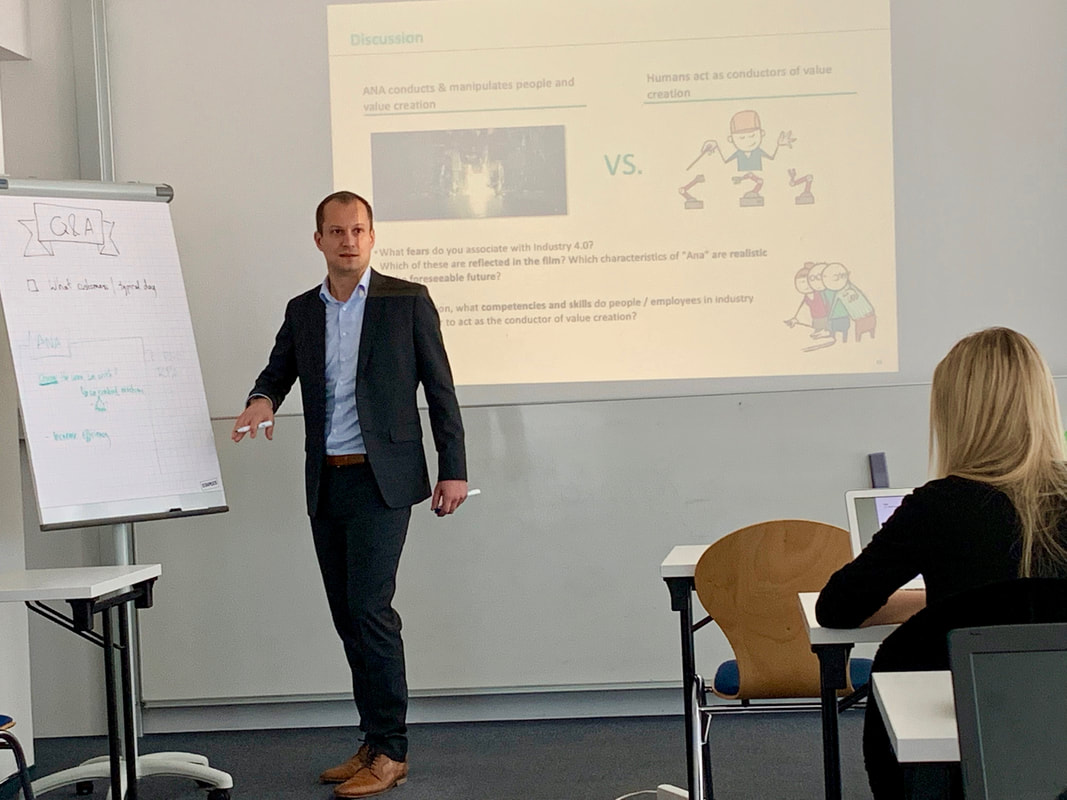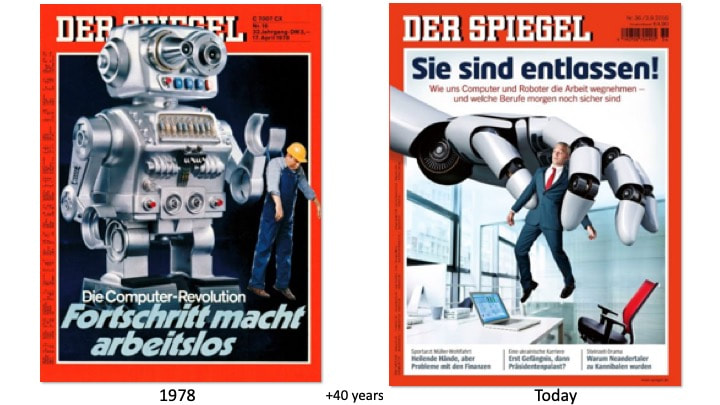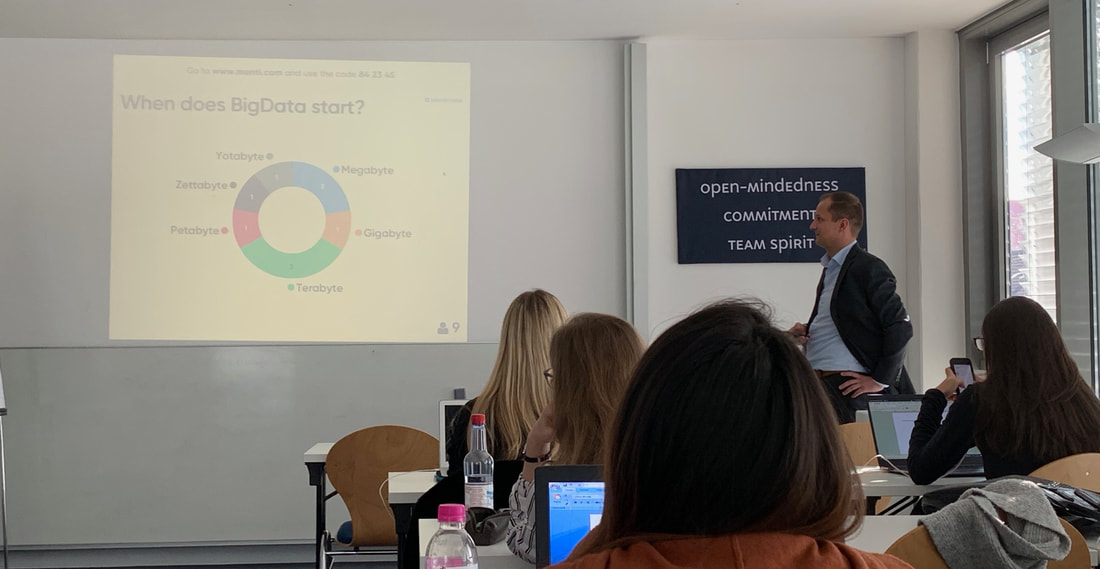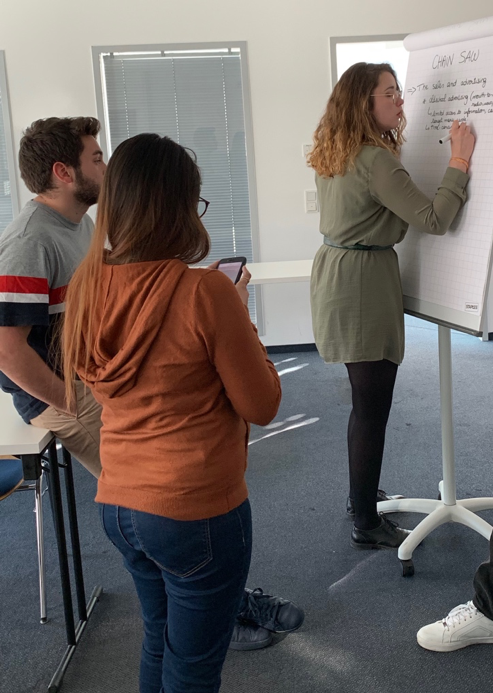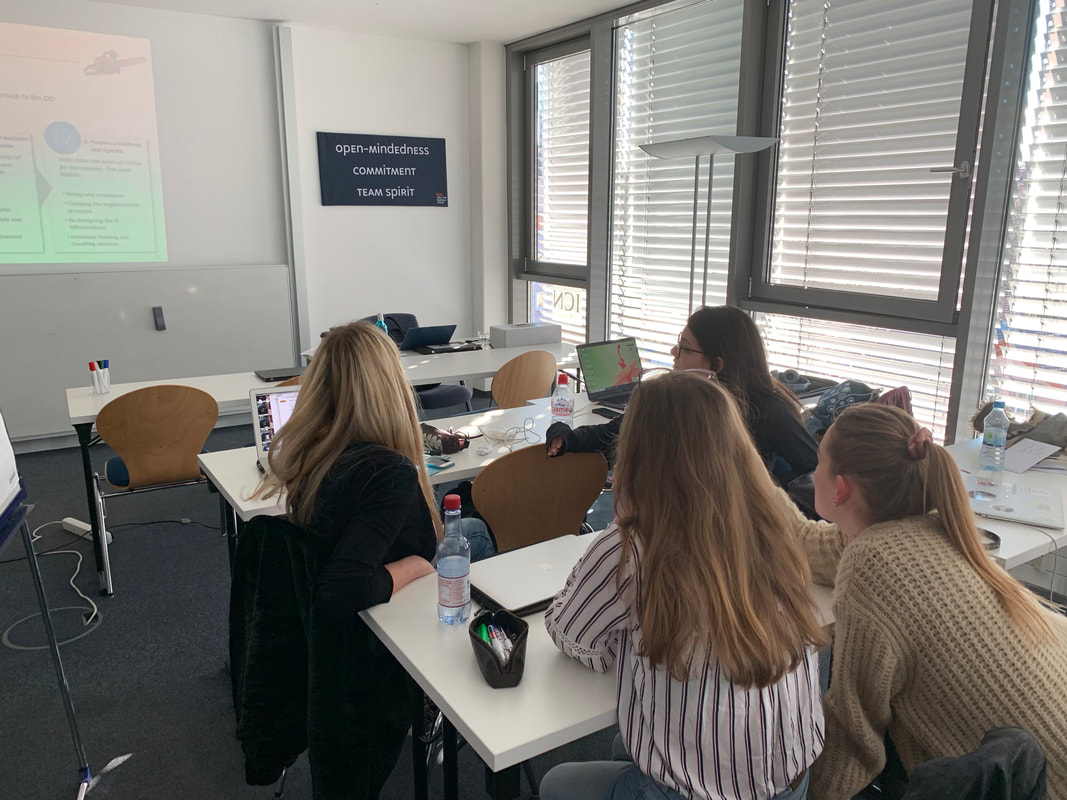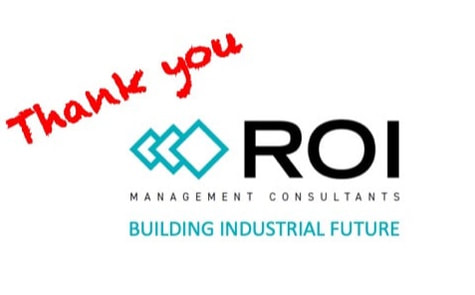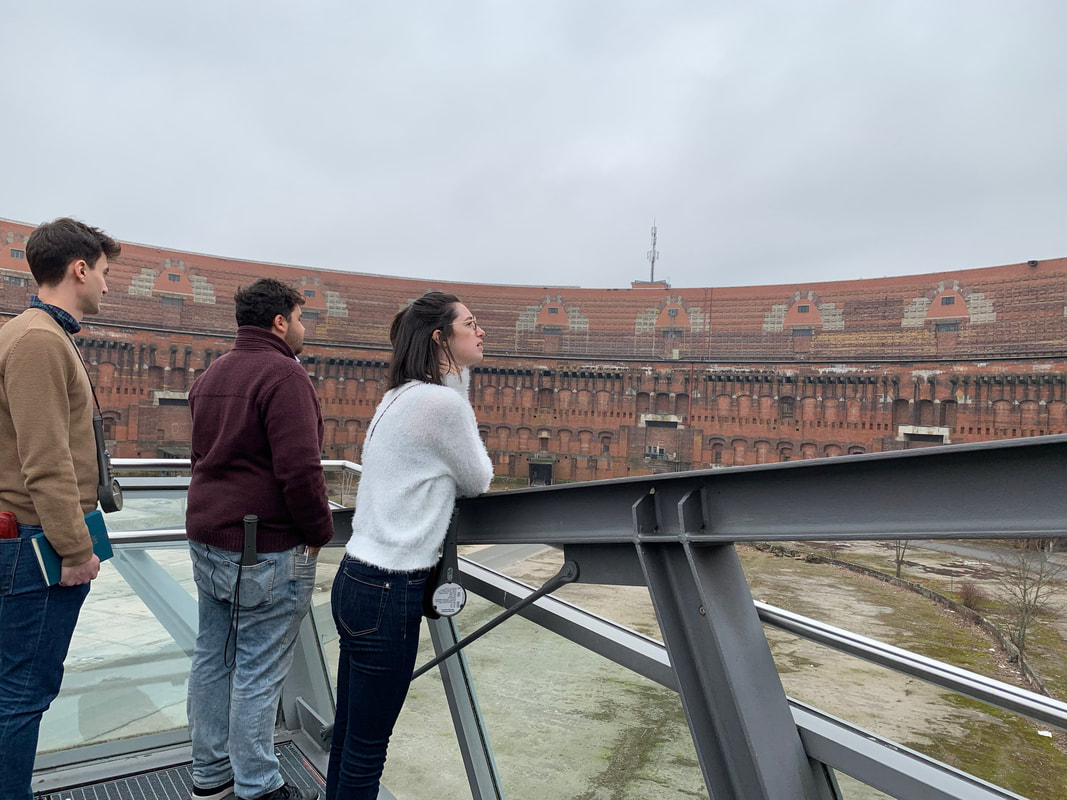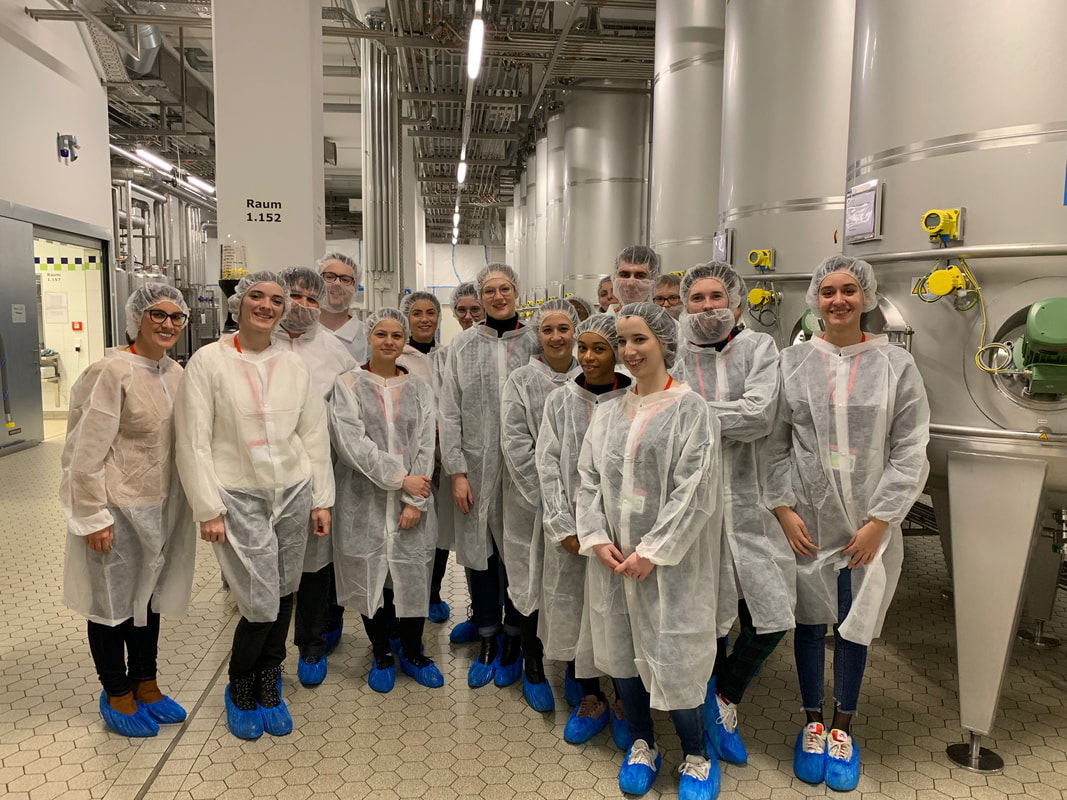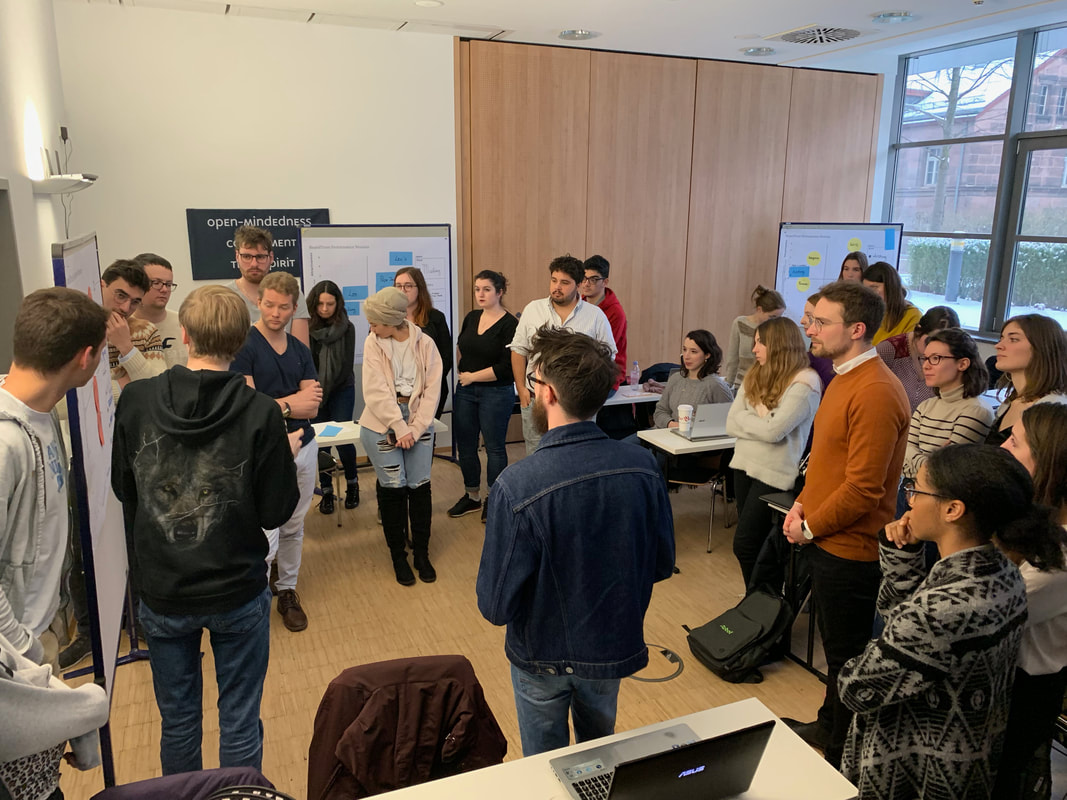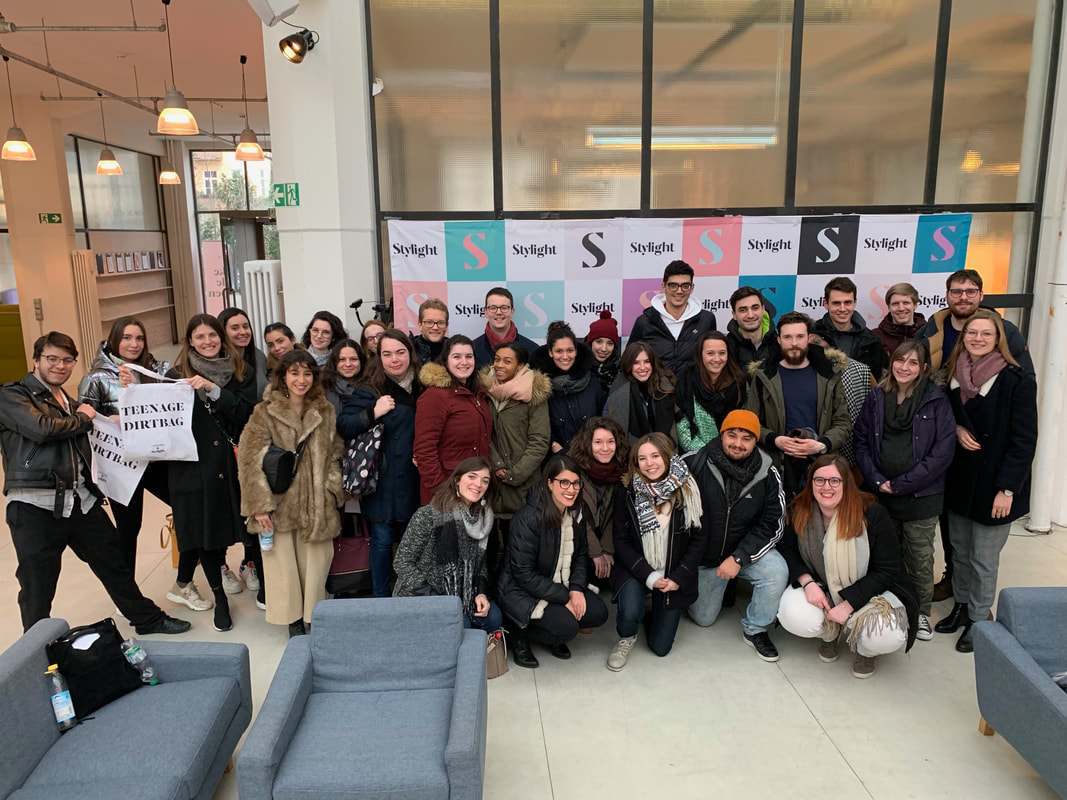Alexandra Rome - Personal Page
|
For the second year in a row, the MSc students at ICN welcomed Dr. Christian König, a Senior Business Consultant at ROI based in Munich. With offices around the globe, ROI has made its name specializing in industrial digitization, manufacturing, logistics, and supply chain management – all essential competencies for the industrial marketer in today’s age. An expert in digital production and logistics, Dr. König outlined how digital innovation redefines businesses, disrupts markets, and changes the way we work. But don’t be mistaken: the pathway to “industry 4.0” (the catchall phrase that describes automation and data exchange in manufacturing technologies) is not a linear one. And significant barriers to digital transformation include a lack of infrastructure, funding, skill, and above all, a deep-seated fear of losing control (think: Hollywood’s I, RobotorEx Machina). But can we decipher fact from fiction? Will technology control and manipulate employees as business processes become more automated? Or can humans act as conductors of value creation? To be sure, the solutions are not so clear cut. A majority of companies have yet to define an overall data and digitization strategy. Many complain of a shortage of skilled workers in the necessary fields of digital competence. And yet, as Dr. König made clear, our predictions regarding the impact of technology in the past (especially about Big Data) have been vastly underestimated. . Later, the students put their cyber-skills to the test: identifying various digital opportunities for medium-sized production companies. Together, they identified how digitalization might be optimized to improve advertising efficiency as well as post-sale communication and maintenance. In addition to offering us a glimpse into the Fourth Industrial Revolution, Dr. König shared with us what it takes to make it or break it in this career path. While an “up or out” ideology has long defined consultancy firms, he emphasized that in today’s climate, one’s staying potential depends much more on their digital analytical skills, critical thinking abilities, and their experience working in international and multicultural teams. For all of these insights – we would like to extend our sincere gratitude and appreciation to Dr. König and ROI. We look forward to welcoming him back next year at our campus in Berlin!
0 Comments
Dark tourism, medicinals, fashion oh my! The Msc Marketing and Brand Management students started 2019 off with a bang. Beginning with a visit to Nuremberg’s Documentation Center Nazi Part Rally Grounds, we took a guided tour through the Fascination and Terror exhibition, analyzing different forms of propaganda the Germans deployed in WWII. Afterwards, as part of a segment on dark tourism, we brainstormed about what exactly goes into branding a dark tourist destination like the Documentation Center (Germany has plenty of these), but also spots like Auschwitz in Poland and the Père Lachaise Cemetery in France. The students then thoughtfully discussed ways they might brand these types of destinations so as to appeal to a younger, digital native audience, while still remaining ethical and keeping the missions of the destination intact. Talk about branding outside of the box! Next, we were off to Neumarkt to visit the Bionorica Headquarters, a leading global manufacturer of herbal medicines (you might have heard of their signature product, Sinupret), with sites and partners on almost every continent. We started the day off by ‘scrubbing-in’ for a tour of the production facilities. With our white coats, blue shoe covers, and hair nets (some of the boys also had beard nets, as shown below), we learned how these herbal medications are produced and packaged. After lunch, we ended the day with Dr. Jürgen Ott and Carina zu Löwenstein who presented an in-depth look into how Bionorica goes about marketing and branding their products to an increasingly digital audience. To help them with this aim, the students were tasked with researching various digital marketing strategies deployed by well-known dermocosmetic brands like La Roche-Posay and Eucerin. Needless to say, digital marketing is not one-size-fits-all… This point was cemented following a visit from Andreas Pauls, a strategy consultant at Brandtrust: a top branding-oriented consultancy in Nuremberg. Here, we learned about the importance of linking a marketing campaign to the customer’s experience- one without the other does not a successful brand make. Then, applying Brandtrust’s Brand Matrix, the students analyzed the market and developed a rebranding strategy for Mustang Jeans, a German company that has traditionally marketed itself as an American lifestyle brand. There was no shortage of creative ideas – ranging from differentiating the brand as a sustainable fashion company to relocating its production processes to match the company’s claims. Following this exercise, there’s no doubt, in my mind at least, that these students well understand the necessity of integrating a branding strategy across all functions of a company. In continuing with the fashion theme, we traveled south to Munich, where we visited the Stylight Headquarters. Immediately upon entering the building, we could sense the start-up vibe. Located in an open-space warehouse, we were taken aback by the young, hip, and international feel of the fashion aggregate company (think: something like a fashion google). Greeted by Ilenia Sarman, the Head of Brand and Content Marketing and her team, we were able to glimpse into the fascinating, yet complex world of content marketing, social media, and corporate design for an e-commerce start-up. With fun campaigns featuring the Minions as Minionistas and a Sex and the City treasure hunt, it’s no wonder the staff seem so thrilled to be working there. Their enthusiasm was contagious and evident in the student workshop where the students were asked to ideate 360° marketing campaigns to increase brand awareness and loyalty. Ideas ranging from fashion shows through the streets of Paris, pop-up shops located across Germany, and an addition of a ‘trendy food’ segment, did not fail to impress. As ICN prepares its move to Berlin, we are both saddened and excited. While we have benefitted so much from Southern Germany’s fantastic industry, we know there is much to explore in the East, with tech start-ups to dark tourism spots abound. We can only hope that the businesses there will be as welcoming as the companies that we have partnered with over these past two years in Nuremberg, Neumarkt, and in Munich. And I can only hope that the students will be just as inquisitive, clever, and thoughtful as these two groups have been.
|
Alexandra RomeI've been lucky enough to find a career that combines my love of traveling, passion for educating, and need to work in sweatpants at least 50% of the time (see I really am American). Archives
April 2020
Categories |
 RSS Feed
RSS Feed
